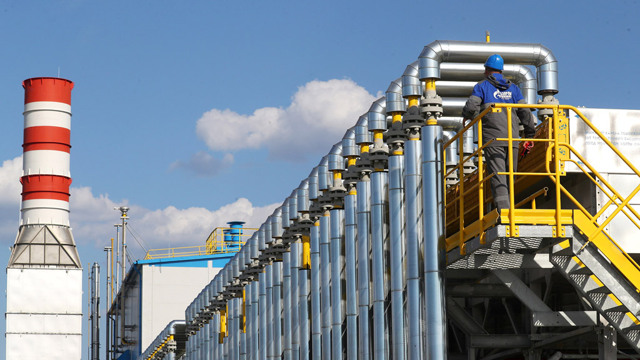The natural gas market has entered unknown territory. The fluctuations in the price of this fuel on 6 October were, in the words of one analyst, “unprecedented since the zero year of gas liberalization in Europe”. With a record change, the price of wholesale gas in the Netherlands – a European benchmark – grew by 30 percent in a span of three to four hours, from an already surprisingly high level.
These are numbers that give chills to European governments, in view of winter. And when the EU sneezes, the UK, which is heavily dependent on imports from the other side of the Channel, also catches a cold.
This gas shortage has been caused by the convergence of various facts around the world, where different economies are thirsty for energy after the slowdown linked to the pandemic. At the heart of the storm lies Russia. Although it supplies only 1 per cent of Britain’s gas, Russia is Europe’s largest supplier, with around 40 per cent of all EU gas. And a reduction in European gas volumes leads to higher prices in the UK and elsewhere.
Pressures for the Nord Stream 2 pipeline
There is no doubt that Russia supplied north-western Europe with lower volumes of gas this summer than in the years before the pandemic: between September and October they fell by about 17 percent, according to Tom Marzec-Manser, of the energy market analysis company Icis Lng.
The fact that Russia’s Gazprom has not booked additional gas transit capacity through Ukraine to European destinations for October has prompted some to accuse the Kremlin of voluntarily fueling the crisis. “While it technically fulfilled its contractual obligations with the West, Russia had no interest in capitalizing on the high demand for additional gas from its European customers. It is the only country that could really ease the price pressure, and it has decided not to, ”says Maria Shagina, researcher in energy policy at the University of Zurich.
The Kremlin has always wanted to present itself to the West as a reliable gas supplier. Recent developments, however, could mark a new phase in its foreign policy. Indeed, some analysts believe the Kremlin sees record gas prices as an opportunity to help Gazprom put pressure on its Western partners to accelerate approval of the controversial Nord stream 2 pipeline.
Nord stream 2, an infrastructure considered vital by the Kremlin, is expected to double natural gas supplies from Russia to Germany, but has created divisions between European countries and friction between the European Union and the United States. The pipeline will not cross Ukraine, thus depriving it of the roughly one billion euros that the country received for the right of gas transit.
“Russia will feel in a position of power and will seek to use its supplies as leverage to accelerate the final approval of Nord stream 2,” says Shagina. “Moscow had never before used its gas as a weapon of pressure on Western Europe.”
Fatih Birol, executive director of the International Energy Agency (Iea), said on 6 October that Russia would have the ability to alleviate the energy crisis, “if it wanted to”. The IEA analysis suggests that Moscow may have the capacity to increase supplies to Europe by up to 15 percent.
Serbian President Aleksandar Vučić described Vladimir Putin as “the most influential person” in the energy market, but Kremlin spokesman Dmitry Peskov denied that a conspiracy was taking place, instead emphasizing Russia’s internal needs after the cold of the first quarter of the year.
Exaggerated perception
It was in particular the German Chancellor, Angela Merkel, who echoed this denial. Despite the unprecedented increases on 6 October, what happened later in the day suggests, according to some analysts, that the perception of Vladimir Putin’s omnipotence is definitely exaggerated. “We are considering a possible increase in the offer on the market, but we have to do it carefully. We will agree with Gazprom and we will talk about it, ”Putin said, in a comment that immediately generated a significant reversal from the increases at the beginning of the day, even pushing them to lower levels than those of 5 October.
On the afternoon of 6 October there was a significant increase in gas supplies from Russia via Poland and Ukraine. “The flows were higher than the previous day: there was an immediate change of pace”, says Marzec-Manser, adding that according to some “the trend could be confirmed in the days and weeks to come”.
Gazprom aims to reach 72.6 billion cubic meters of internal gas storage by the beginning of November. After that date, Russia should have more gas available for export.
Most analysts don’t see any significant gains from Nord stream 2 this year, even if its approval is warranted, as the infrastructure is likely to run at 10 percent of its capacity.
Whether or not salvation is on the way will become clearer on October 18, the date on which transportation capacity through Ukraine and Poland will need to be booked.
Secondo Jacob Kirkegaard, senior fellow of the German Marshall Fund study center, these developments show that Putin is acting not from a position of strength, but of weakness. “He needs to sell,” says Kirkegaard. “True, perhaps he is playing with the European gas markets, but he is also reacting to his own weakness … He has no interest in forcing accelerated decarbonisation in Europe”.
(Translation by Federico Ferrone)
.
